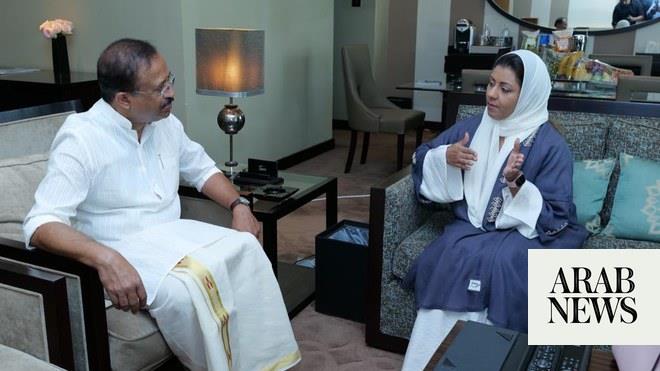
HANNOVER, Germany – United Nations Secretary-General António Guterres will deliver a keynote address at the opening ceremony of the Virtual Summit of the Global Manufacturing and Industrialization Summit (#GMIS2020), which is scheduled to take place on Sept. 4-5.
The summit will also convene the heads of state of Angola, Armenia, Brazil, Ghana, in addition to the prime minister of Cambodia and Crown Prince of Jordan to participate in discussions centered around how fourth industrial revolution (4IR) technologies can shape the future of manufacturing, strengthen global value chains, and restore global economic activity in the wake of the COVID-19 pandemic.
Ministerial representatives will also be present on behalf of the presidents of Egypt, Indonesia, and Rwanda, alongside heads of United Nations agencies.
A key session at the #GMIS2020 Virtual Summit will gather João Manuel Gonçalves Lourenço, president of Angola, Nana Akufo-Addo, president of Ghana, and Albert M. Muchanga, commissioner of trade and industry of the African Union Commission, to discuss Germany’s ‘Marshall Plan with Africa’ which aims to harness the potential of 4IR technologies to accelerate economic growth and the spread of inclusive and sustainable development across Africa.
Germany has made Africa a focus of its G20 Presidency and adopted this collaborative initiative with the continent in an effort to help bolster entrepreneurship and innovation and create the estimated 20 million yearly new jobs needed for its young population.
The panel will explore what factors are needed to catalyze industrialization on the African continent and how policymakers, development partners and the private sector can address these opportunities through initiatives like the Marshall Plan.
Lourenço said: “For Africa to reach its true potential we must focus on meeting the needs of our young people through providing quality education and training, especially when it comes to the advanced digital technologies of the fourth industrial revolution which hold great potential to deliver sustainable development for citizens everywhere.
“One of the most effective ways of doing this is through partnership with the international community and initiatives like the Global Manufacturing and Industrialization Summit are essential to help facilitate these partnerships.”
Armen Sarkissian, president of Armenia, Jair Bolsonaro, president of Brazil, Crown Prince Al Hussein Bin Abdullah II, of Jordan, and Samdech Akka Moha Sena Padei Techo Hun Sen, prime minister of Cambodia will participate on a panel session focused on ‘Restoring prosperity in a post-pandemic world’.
The pandemic has been the catalyst for a shift towards e-learning all around the world, however it has exposed the widening digital divide between developed and developing countries.
The discussion will consider how 4IR technology can help achieve prosperity for populations in less developed countries that might be affected by a crisis, and how the international community can provide the support and tools needed for this to happen.
Prince Al Hussein said: “Instead of abandoning our global system of cooperation and multilateralism, Jordan, led by King Abdullah II, believes a better global integration is the way forward — a re-globalization that builds on the strengths and resources of each of us, for the benefit of all, ensuring global synergy and prosperity.”
Sarkissian said: “Internet connectivity and access to digital technology has become a basic prerequisite for prosperity but the pandemic threatens to widen the digital divide that already exists between men and women, rural and urban areas, and developed and less developed countries.
“A global approach is required to address this issue if the world is to stage a fully inclusive recovery and brighter future for all people and I look forward to discussing ways to achieve this with my counterparts at GMIS.”
Other heads of state who will be represented at the summit include Abdel Fattah El-Sisi, president of Egypt, represented by Nevein Essam El Din Gamea, minister of trade and industry; Paul Kagame, president of Rwanda represented by Hon. Soraya Hakuziyaremye, minister of trade and industry of Rwanda; and Joko Widodo, president of Indonesia, represented by Gen. (Ret.) Luhut Binsar Pandjaitan, coordinating minister for maritime & investment affairs.
Li Yong, director-general of United Nations Industrial Development Organization (UNIDO) will be joined by Houlin Zhao, secretary-general of the International Telecommunication Union (ITU) on a panel focused on ‘Gearing up for a manufacturing renaissance’, discussing best practices to strike a balance between creating a more resilient manufacturing sector and delivering a framework of social prosperity to ensure the promotion of inclusivity and sustainability.
Badr Al-Olama, head of the organising committee for the GMIS, said: “We are honored to welcome the United Nations Secretary-General António Guterres and heads of state from Angola, Armenia, and Ghana, as well as the prime minister of Cambodia and the Crown Prince of Jordan.
The participation of these global leaders reflects the inclusive and truly global perspective of GMIS as it sparks debate on the future of manufacturing, and how fourth industrial revolution technologies can spread sustainability and prosperity across the world.
The pandemic has exposed vulnerabilities in global supply chains, forcing businesses to redistribute their manufacturing activities and accelerate their digital transformation strategies. This requires collaborative management between all stakeholders.”
The GMIS is a joint initiative by the United Arab Emirates (UAE) and the United Nations Industrial Development Organization (UNIDO). The third edition of the Summit (#GMIS2020) will be held virtually under the theme – Glocalization: Towards Sustainable and Inclusive Global Value Chains. The #GMIS2020 Virtual Summit will feature a cross-section of close to 100 global leaders from the world’s public and private sector participating across more than 20 virtual sessions.
Discussions will focus on the major issues facing the manufacturing sector and will explore how the adoption of 4IR technologies, localizing production capabilities and capacity building, and spreading inclusive and sustainable development will all be critical to the future of global value chains.
The summit will also hold five working group sessions gathering a cross-section of experts from world-leading organisations to discuss the challenges and opportunities related to promoting the role of women in manufacturing; enhancing industrial safety and security; advancing the decarbonization of industry; developing future leaders of industry; and setting up an Inclusive and Sustainable Industrial Performance (ISID) Index that helps measure the Environmental, Social, and Corporate Governance (ESG) performance of public and private sector entities. — SG












